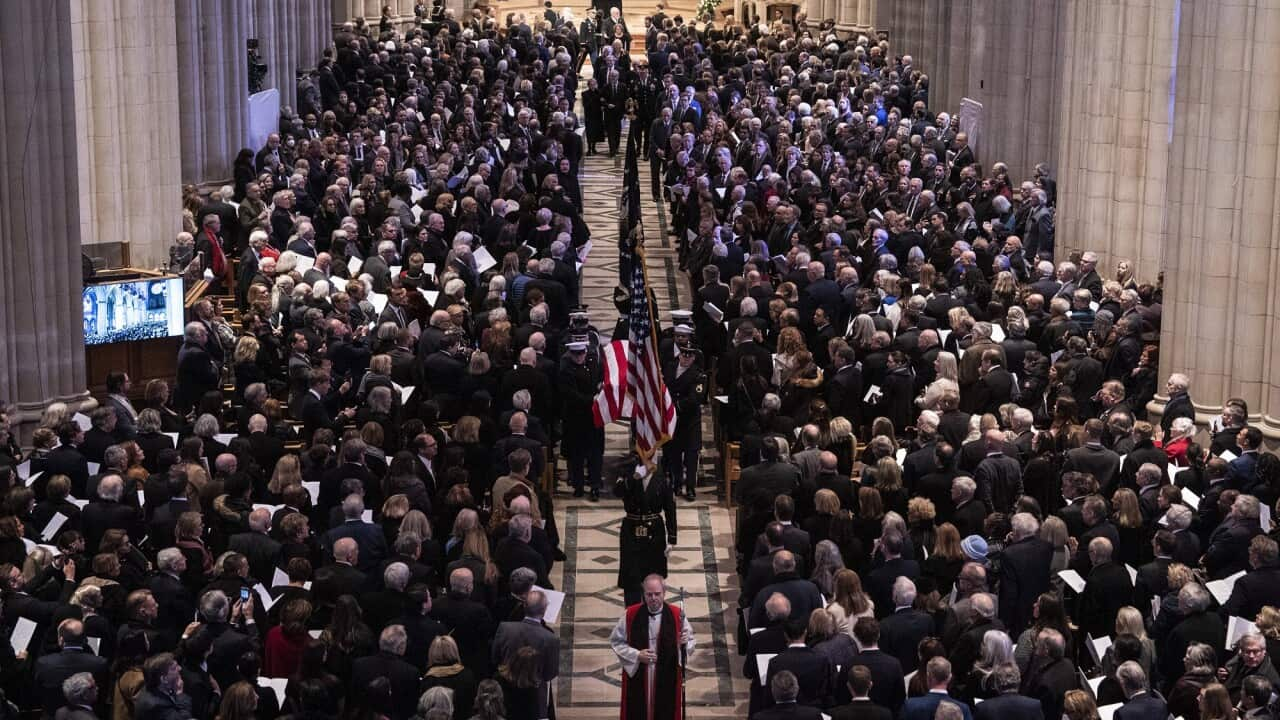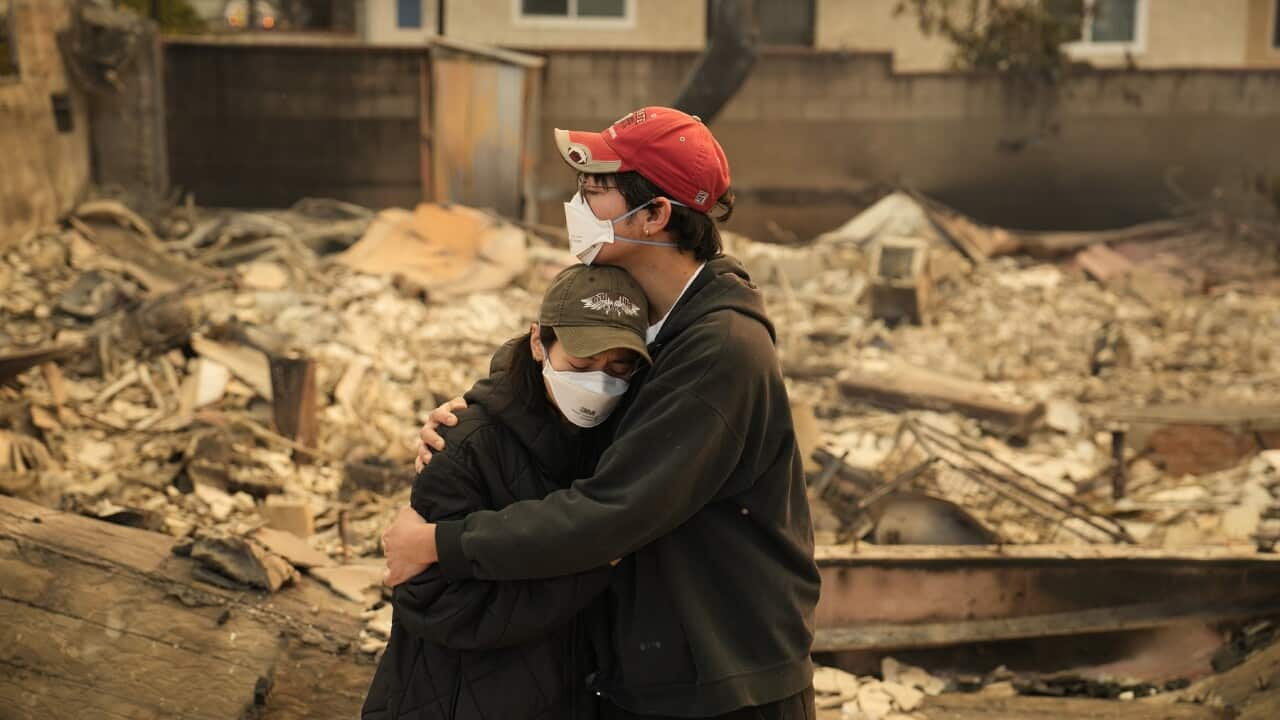TRANSCRIPT
It's the mid-noughties.
Low rise jeans are in, Aussie rock is dominating the charts, and Australians are glued to the Athens Olympics.
"Can Thorpe win again? Hasn't lost for six years. Hackett's very close, really close, closing. Thorpe and Hackett, it's gonna be a touch. They hit it, Thorpe's got it. What a race, Hackett's second, and third Keller."
But back home a fierce debate is raging, as the justification for war in Iraq evaporated.
The British government's Butler Review found the intelligence claiming that Iraq possessed weapons of mass destruction was unreliable.
John Howard was Australia's Prime Minister at the time.
He says there was still evidence of capability to manufacture the weapons.
"I knew in advance of the official announcement that attempts to locate physical stockpiles had not been successful. I never had any doubt that the capacity to make them existed, and that the evidence that verified that was plentiful, but the actual physical stockpile, it was obvious in the lead up to the formal announcement that that was going to come. And it was disappointing, but, and it was a setback, and it allowed enemies of our decision to renew their attack. But that's how it goes."
Pictures soon emerged of prisoners at Abu Ghraib prison in Iraq, showing members of the US Army and CIA torturing, and physically and sexually abusing detainees.
"I was very concerned, and I hoped, and it happened, that the Americans took disciplinary procedure within their military processes against those responsible. But it was damaging, because as a society, we don't approve and we don't support, we oppose very strongly the humiliation of prisoners in our custody."
Australia was soon facing its own intelligence questions: accused of bugging the cabinet room of the East Timorese government, allegedly gathering information about the Timor Sea Treaty being brokered, deciding how the countries would share lucrative proceeds from seabed petroleum.
"In terms of the East Timorese Cabinet Room controversy. Do you endorse actions?"
"What I said, and what I repeat to your viewers, is that I had such confidence in our intelligence agencies that I believe they would always act in a manner that promoted Australia's national interest."
"And if I may, just to follow that, would that include, if required, in the national interest, an action like that?"
"Well, I said, what I said. I always thought they adhere to the national interest."
John Howard called an election, coming up against Labor's wildcard candidate Mark Latham.
A somewhat iconic moment was captured as the two crossed paths on the campaign, as Latham tried to intimidate Howard with a handshake.
"It might have affected some people but I was ready for it, because he tried that sort of stunt before, and I don't think the fact that he was physically bigger than me mattered one bit."
The Liberals were swept back into office, and the economy was going strong.
Mr Howard says that allowed Australia to provide assistance after the Boxing Day Tsunami.
"I thought the economic policies we followed were very good. We were in a very strong financial position. Then that's why we were able to help Indonesia at the time of the tsunami, Australia would not be in a position to do that now, not as responsibly. I'm not saying it wouldn't want to, but we had money in the bank, and we used it for a good purpose."
At least 225,000 people died in the disaster, including 170,000 people in Indonesia's Aceh province.
It's the deadliest tsunami on record, with 26 Australians losing their lives.
The government's treatment of First Australians was questioned.
Riots in Redfern broke out after the death of 17 year old Indigenous teen Thomas Hickey.
And the government moved to disband ATSIC - the Aboriginal and Torres Strait Islander Commission - a group of elected Indigenous representatives.
"ATSIC had not worked, and it was a bipartisan decision to abolish ATSIC. I don't think the solution to Aboriginal Affairs lies in creating institutions and gesture politics. I think you have to bridge the gap in a practical way."













